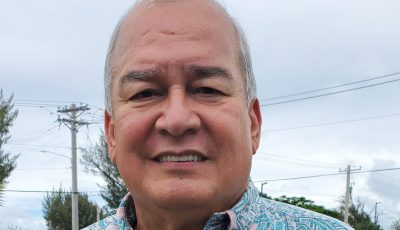‘Oral cancer is a huge burden for NMI’s small population’
An average of three cases of oral cancer come up every month in the CNMI, making it a huge burden for the CNMI’s small population, according to a physician at the Commonwealth Healthcare Corp.
Speaking in a radio news program yesterday, CHCC’s Dr. William Moss cited a CHCC survey that shows that there’s a higher report in teens who chew betel nut than those who are middle aged adults. Chewing betel nut is believed to reduce stress and suppress hunger.
Moss said 40% of teen respondents, including those who are 20 to 30 years old, have reported that they have chewed betel nut versus 20% to 30% of middle-aged adults—typically 40 to 60 years old—who have also reported chewing betel nut.
“You have to take that with a grain of salt because people don’t always report exactly what they’re doing, but the current landscape suggests that whatever the oral cancer burden is now…chewing rates are going up, and people are starting at young ages, and the frequency of that happening is going up,” said Moss.
According to Saipan Tribune archives, it has been reported that oral cancer is the third leading type of cancer within the CNMI. The history of oral cases traces back to those who have chewed when they were younger or are still chewing betel nut. Betel nut is areca nut commonly mixed with lime stone powder and cigarettes.
Moss said that chewing is more common among Asian Pacific Islanders and not so much among those who have immigrated here. He said this is a “huge burden on a small population” versus when he did his residency in San Francisco, California, where doctors saw one case of oral cancer every few months.
According to Moss, when oral cancer is detected early, there’s a survival rate of 90 to 95% but the later stages—stage 2, 3, 4—is a “different ballgame.”
“It’s really unfortunate that we have people [coming] in so late [to be checked], because we’re here, there’s so many places people could go to, various doctors…dental clinics offer screenings. So if you notice something, any lump or a bump of any size, just have someone lay eyes on it, and you can really do yourself a huge favor,” said Moss.
Unfortunately, even when oral cancer is detected early, it’s recommended that it gets treated as the cancer will always be there and it will grow. “Once you have a cancer it’s there and cancers grow, they don’t just go away on their own, unfortunately. So treatment of some kind, would be the only way to get rid of it,” said Moss.



























